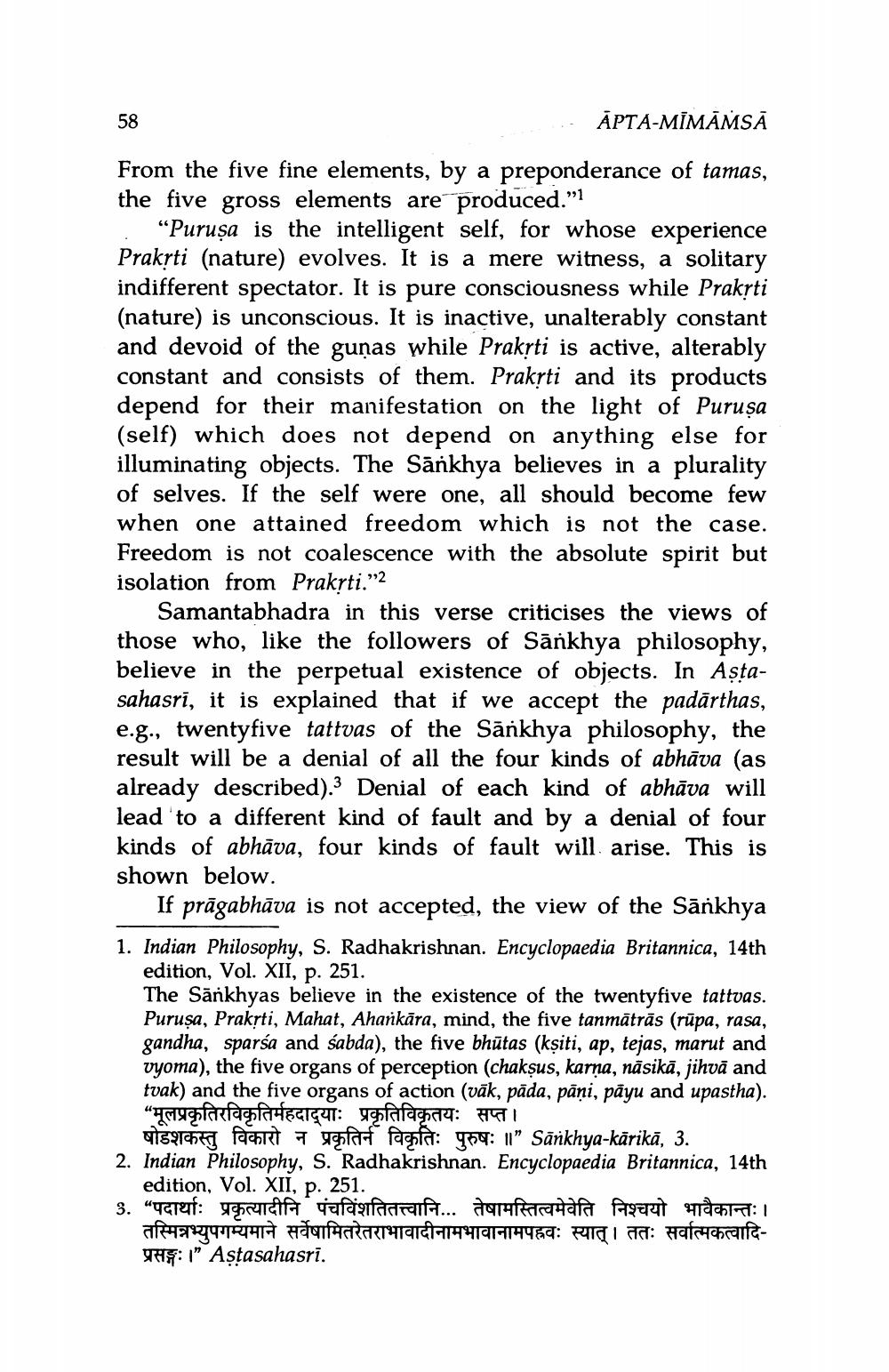________________
ĀPTA-MĪMĀMSĀ From the five fine elements, by a preponderance of tamas, the five gross elements are produced.”
“Purusa is the intelligent self, for whose experience Prakrti (nature) evolves. It is a mere witness, a solitary indifferent spectator. It is pure consciousness while Prakrti (nature) is unconscious. It is inactive, unalterably constant and devoid of the guņas while Prakrti is active, alterably constant and consists of them. Praksti and its products depend for their manifestation on the light of Purusa (self) which does not depend on anything else for illuminating objects. The Sānkhya believes in a plurality of selves. If the self were one, all should become few when one attained freedom which is not the case. Freedom is not coalescence with the absolute spirit but isolation from Prakrti.”2
Samantabhadra in this verse criticises the views of those who, like the followers of Sārkhya philosophy, believe in the perpetual existence of objects. In Aştasahasri, it is explained that if we accept the padārthas, e.g., twentyfive tattvas of the Sānkhya philosophy, the result will be a denial of all the four kinds of abhāva (as already described). Denial of each kind of abhāva will lead to a different kind of fault and by a denial of four kinds of abhāva, four kinds of fault will. arise. This is shown below.
If prāgabhāva is not accepted, the view of the Sārkhya 1. Indian Philosophy, S. Radhakrishnan. Encyclopaedia Britannica, 14th
edition, Vol. XII, p. 251. The Sārkhyas believe in the existence of the twentyfive tattvas. Puruşa, Prakrti, Mahat, Ahankāra, mind, the five tanmātrās (rūpa, rasa, gandha, sparsa and sabda), the five bhūtas (kṣiti, ap, tejas, marut and vyoma), the five organs of perception (chakşus, karna, nāsikā, jihvā and tvak) and the five organs of action (vāk, pāda, pāņi, pāyu and upastha). “मूलप्रकृतिरविकृतिर्महदाद्याः प्रकृतिविकृतयः सप्त।
415270 Pachet 7 ufaf fagota: 269: Il" Sārkhya-kārikā, 3. 2. Indian Philosophy, S. Radhakrishnan. Encyclopaedia Britannica, 14th
edition, Vol. XII, p. 251. 3. “पदार्थाः प्रकृत्यादीनि पंचविंशतितत्त्वानि... तेषामस्तित्वमेवेति निश्चयो भावैकान्तः ।
तस्मिन्नभ्युपगम्यमाने सर्वेषामितरेतराभावादीनामभावानामपहवः स्यात। ततः सर्वात्मकत्वादिWHF: I" Astasahasri.




